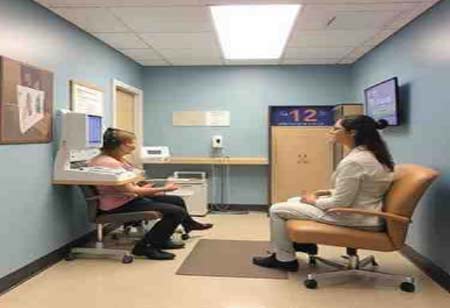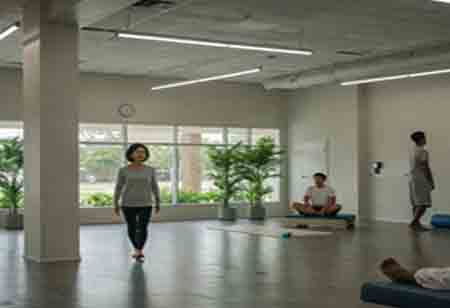Advancing Audiology Centers in Indiana: Trends and Future Outlook

By
Medical Care Review | Wednesday, March 26, 2025
Stay on top of your health and well-being with exclusive feature stories on the top medical clinics and treatment centers, expert insights and the latest news delivered straight to your inbox. Subscribe today.
Audiology centers in Indiana play a critical role in diagnosing, treating, and managing hearing disorders. As people grow older, they are more likely to experience hearing loss due to prolonged exposure to noise and natural degeneration of the auditory system. Like many other states, Indiana has a growing elderly population, increasing the need for specialized audiology services. Public health initiatives and advancements in audiology education have contributed to a growing demand for hearing assessments and treatment options.
Technological advancements in hearing aids and diagnostic tools have also fueled the growth of audiology centers. Modern hearing aids are effective and have innovative features that improve user experience. Improved diagnostic methods allow for early and more precise detection of hearing issues, leading to better treatment outcomes. Accessibility to audiology services varies across the state, with urban areas having more facilities and specialized professionals than rural regions. Some patients in remote areas face challenges in reaching audiology centers, highlighting the need for mobile audiology clinics and tele-audiology solutions.
Market Trends Shaping Audiology Services
The audiology industry in Indiana is witnessing several key trends influencing how services are delivered and accessed. While this has made hearing solutions more accessible, it presents challenges related to proper device fitting, long-term effectiveness, and customer support. AI-powered hearing aids can adapt to different environments, filter background noise, and improve speech clarity. The smart hearing devices learn user preferences and automatically adjust to enhance the listening experience.
The rise of tele-audiology is also transforming how patients receive care. Virtual consultations, remote hearing tests, and app-based hearing aid adjustments have made audiology services more accessible, particularly for individuals in rural areas. The trend has allowed audiologists to provide follow-up care without requiring patients to visit physical clinics frequently. Personalized treatment plans have become more prevalent as audiology centers focus on tailoring hearing solutions to individual needs. Modern hearing assessments consider lifestyle, work environment, and social interactions to ensure patients receive the most suitable hearing aids and therapy options.
Technological Revolution and Innovations in Audiology
The most significant advancement is using digital hearing aids, which offer superior sound quality, background noise reduction, and wireless connectivity. 3D scanning and printing technology have also impacted audiology by enabling the creation of custom-fitted hearing aids and earmolds. These innovations ensure greater comfort, better sound quality, and reduced feedback noise. With precise 3D imaging, audiologists can design hearing aids that perfectly fit a patient’s ear canal, improving the user experience.
The development of AI-driven diagnostic tools has improved the accuracy and speed of hearing assessments. AI-powered audiometry tests can analyze hearing patterns and detect abnormalities more effectively than traditional methods. ML algorithms are being used to refine hearing aid performance by continuously adjusting to different environments. The innovation allows hearing aids to isolate and amplify speech while reducing background noise, making conversations more transparent and comfortable for hearing-loss individuals. By offering virtual consultations and remote hearing aid programming, audiologists can reach more patients without needing in-person visits.
Many individuals with hearing loss struggle to afford the necessary devices since hearing aids are often not covered by insurance. Audiology centers can work with manufacturers to offer financing options, subscription-based hearing aid programs, and more affordable models to address this issue. Patient education and awareness also pose a challenge in the audiology industry. Audiology centers must prioritize public education campaigns and community outreach programs to encourage early hearing assessments and treatment.
The rapid introduction of new technology can overwhelm patients and audiologists. While advancements in hearing aids and diagnostics improve patient outcomes, frequent updates require ongoing training for audiologists to stay current with the latest innovations. Investing in training and development initiatives can enable audiologists to keep up with new technologies and deliver optimal care.
Growing Impact and Future
The presence and advancement of audiology centers in Indiana have profoundly impacted individuals with hearing impairments. Improved hearing solutions improve communication, stronger relationships, and enhanced social interactions. Treating hearing loss early also helps reduce the risk of cognitive deterioration, depression, and social seclusion. The audiology industry supports job creation and healthcare expansion. As more people seek hearing healthcare, the demand for trained audiologists, hearing aid specialists, and audiology support staff continues to grow. Expanding services, including tele-audiology and mobile clinics, can create additional employment opportunities and improve healthcare accessibility.
The need for audiology services in Indiana will grow as hearing health awareness increases. Future advancements in AI, personalized hearing solutions, and wearable technology will further revolutionize the industry. Additionally, regulatory changes and insurance reforms could improve the affordability and accessibility of hearing aids for a broader population. Collaboration between audiologists, researchers, and technology developers will drive innovation in hearing healthcare. Audiology centers in Indiana can continue to provide high-quality care to individuals with hearing impairments, improving their quality of life.
More in News







